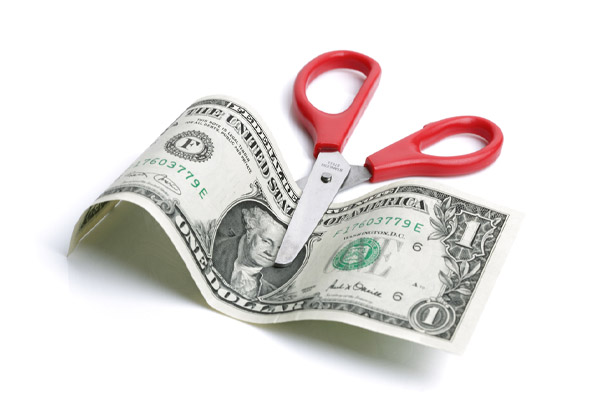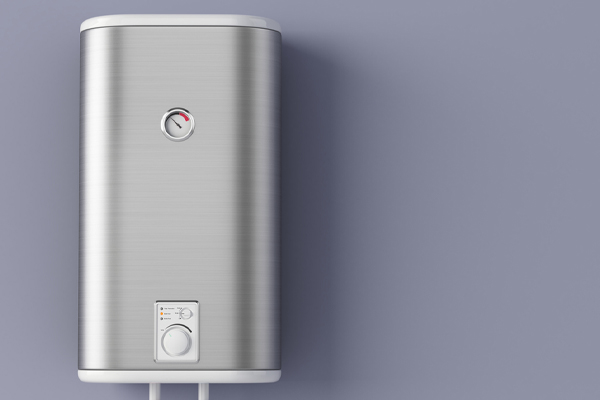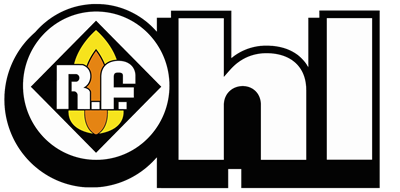Top 10 Tips For Saving Energy & Money on Heating Bills

The costs for home heating have continued to rise year after year. While the current economic conditions are showing oil costs are less this year than last, the overall trend of increased energy costs doesn’t seem to be ending anytime soon. For an average homeowner these prices can be a substantial expense. Heating costs today account for over two thirds of every homeowner’s annual overall heating costs. The good news is that there are still plenty of options, or energy saving heating tips, a homeowner can utilize to cut these costs down quite a bit. In this article, we are going to have a look at 10 very useful tips that will help homeowners save energy as well as money on their heating bills.
10 Best Energy Saving Heating Tips for Reducing Costs & Conserving Energy
Contents
- 1 10 Best Energy Saving Heating Tips for Reducing Costs & Conserving Energy
- 1.1 Energy Savings Tip #1: Keep an Eye on The Thermostat
- 1.2 Energy Savings Tip #2: Tune Up Your Home Heating System
- 1.3 Energy Savings Tip #3: Comparison Shop For Heating Fuel
- 1.4 Energy Savings Tip #4: Check the Settings on Your Water Heater
- 1.5 Energy Savings Tip #5: Check Out Your Insulation
- 1.6 Energy Savings Tip #6: Keep an Eye Out For Drafts & Leaks
- 1.7 Energy Savings Tip #7: Replace the Air Filter
- 1.8 Energy Savings Tip #8: Check the Fireplace Damper
- 1.9 Energy Savings Tip #9: Use Your Blinds & Curtains More Effectively
- 1.10 Energy Savings Tip #10: Have a Home Energy Audit
- 2 Call R.F. Ohl for All Your HVAC Needs
This article will explore 10 practical energy saving heating tips that homeowners can use to reduce their heating bills and save energy.
Energy Savings Tip #1: Keep an Eye on The Thermostat

Naturally, this energy saving heating tip seems a bit obvious. However, it is really misunderstood by more people than you would believe. It can have a major impact on heating bills. Usually, a homeowner can experience a savings of from 2% to 5% for each degree lower they set their thermostat on. That means they can wear an extra shirt or a sweater while at home, and also lower the thermostat when stepping out the door to go to work and experience really good savings.
The same thing can be done at bedtime too. Since they will be under the covers for hours, lowering the thermostat during that time will really add up to saved energy and money over time.
You can actually automate this process by installing one of the new programmable digital thermostats that are available today. You can find them for anywhere from $75 and up. After it is installed, you just set it once and forget it. The small cost upfront will be recouped in no time. It is a wise investment.
Energy Savings Tip #2: Tune Up Your Home Heating System
Regularly tuning up your heating system is a great energy saving heating tip – essential for saving energy and money each year. Just like a car needs periodic maintenance for optimal performance, your heating system requires similar attention to function efficiently.
A well-maintained heating system not only operates more effectively but also consumes less energy. This translates into significant energy savings and, consequently, reduced heating bills. By ensuring that all components of the system are in top condition, you minimize the risk of energy wastage due to inefficiencies like clogged filters or malfunctioning thermostats.
Moreover, an annual tune-up can extend the lifespan of your heating system. Technicians can spot and fix minor issues during these check-ups, preventing them from escalating into costly repairs. This proactive approach also means fewer breakdowns in the middle of the heating season, sparing you from the discomfort and expense of emergency repairs.
In addition, a well-tuned heating system provides more consistent and comfortable heat distribution throughout your home. Ultimately, investing in regular maintenance of your heating system is a cost-effective strategy that pays off by lowering your energy consumption and ensuring a warm, comfortable home.
Energy Savings Tip #3: Comparison Shop For Heating Fuel
You can find price comparison websites online that offer you an easy platform for comparison shopping. Comparison shopping is the smart way to look for savings on buying your heating fuel. However, it’s vital that you choose a supplier that is known for superior-grade home heating oil, like R.F. Ohl.
Choosing high-quality home heating oil is vital for your heating system’s efficiency and reliability. Superior heating oil burns cleaner, enhancing environmental friendliness and system efficiency. It ensures more effective performance, reducing breakdowns and maintenance, while also cutting down pollutant emissions. High-grade oil also prolongs your heating system’s lifespan by lessening wear on key components.
When selecting heating oil, consider the oil’s grade. Premium oils often contain additives that boost fuel efficiency and prevent sludge buildup, which could clog lines and filters. These additives are especially beneficial in cold weather, preventing gelling—a typical issue in low temperatures. Choosing quality heating oil not only maintains a warm home but also ensures your heating system’s durability and lessens environmental impact.
Energy Savings Tip #4: Check the Settings on Your Water Heater

Usually, you can save as much as 5% to 10% when the thermostat on your water heater is lowered down to around 115 to 125 degrees. You can usually pull this off without any noticeable impact in the home. You might, however, have to curb a few activities like using hot water and running your washer simultaneously. Another good option for energy saving heating is the tankless water heaters. These are a bit more expensive, though. They don’t actually store your hot water, they heat it up on demand.
Another good move is to wrap your exposed hot water pipes taking advantage of insulation sleeves or other types of products. If your pipes run through any areas that are uninsulated, this can be a real booster for savings.
Energy Savings Tip #5: Check Out Your Insulation
You may find that your insulation is getting old and inefficient. This is particularly true in older homes. Today, there are newer types of insulation, like those made from cellulose, that are environmentally friendly and more energy efficient. Green products like this can be a great way to curb your energy costs, making use of energy saving heating. Sometimes just adding on a couple of inches of new insulation, rather than replacing it all, can be done in just a few hours. On top of that, the costs of adding the insulation may be offset by qualifying you for an energy-improvement tax credit.
Energy Savings Tip #6: Keep an Eye Out For Drafts & Leaks
Attending to drafts in your home is essential for energy savings. Often, drafts indicate air leaks around doors, windows, or fireplaces, which can significantly impact your heating efficiency. Addressing these leaks promptly not only ensures a more comfortable living environment but also reduces your heating costs. Simple fixes such as installing shrink wrap around windows effectively seal out cold air. For doors, door sweeps can prevent air from escaping or entering, enhancing the insulation of your home.
In cases where the leak source is your fireplace or other openings, consider using spray foam to fill in gaps. This solution is not just effective but also cost-efficient. By sealing these leaks, you prevent warm air from escaping and cold air from infiltrating your home, thereby maintaining a consistent temperature. This act of plugging holes and sealing leaks can lead to noticeable reductions in your heating expenses. It’s a straightforward yet impactful way to boost your home’s energy efficiency during the colder months.
Energy Savings Tip #7: Replace the Air Filter
Regularly replacing your furnace’s air filter is a simple and cost-effective way to maintain your heating system’s efficiency. Often neglected, this straightforward task plays a crucial role in keeping your furnace and blower functioning optimally. With air filters typically ranging from $5 to $10, this minor investment can yield significant benefits. Regular filter replacement not only enhances the performance of your heating system but also contributes to better air quality in your home. It’s a low-cost measure that can have a substantial impact on your overall energy savings and system longevity.
Energy Savings Tip #8: Check the Fireplace Damper
Is this open? These can be a real problem for letting out hot air and letting the cold air come inside. People will often forget to check this. An open damper is not something immediately visible and it can waste a lot of heat continuously.
Energy Savings Tip #9: Use Your Blinds & Curtains More Effectively
When you leave your blinds and curtains open during daylight hours, they can help warm the house up through solar heat. Forgetting to close them at night will let all that heat back out. Close them at night, and they’ll help keep it in.
Energy Savings Tip #10: Have a Home Energy Audit
Certain states offer these at no expense to the homeowner. They will cover most of these suggestions covered in this article and some that were not mentioned. You can get some good discounts by making home energy improvements.
Call R.F. Ohl for All Your HVAC Needs

R.F. Ohl offers premier heating and cooling services across Northeastern Pennsylvania. Our team comprises highly skilled, professionally certified technicians dedicated to providing top-notch HVAC maintenance, repair, installation, and replacement services. Each technician is equipped with the expertise to ensure your HVAC system functions optimally.
We at R.F. Ohl are committed to delivering the region’s most cost-effective heating and cooling services. Our maintenance services can help you achieve enhanced comfort and energy efficiency, ultimately lowering your heating and cooling expenses. Should you require HVAC repair or need a new system, we can guide you to the ideal solution that fits your requirements and budget. We stand behind our work with a solid satisfaction guarantee. For professional HVAC assistance and free, in-home estimates, call R.F. Ohl today.
Click here to contact us today or give us a call at (610) 377-1098 if you have any questions. Click the link to view our service area.
Related Articles: